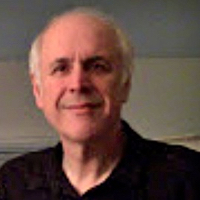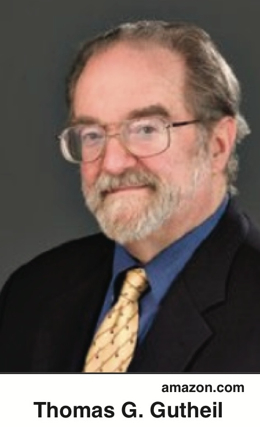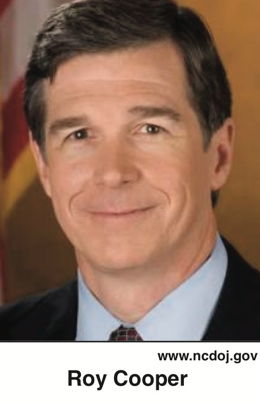Rascals case in brief
In the beginning, in 1989, more than 90 children at the Little Rascals Day Care Center in Edenton, North Carolina, accused a total of 20 adults with 429 instances of sexual abuse over a three-year period. It may have all begun with one parent’s complaint about punishment given her child.
Among the alleged perpetrators: the sheriff and mayor. But prosecutors would charge only Robin Byrum, Darlene Harris, Elizabeth “Betsy” Kelly, Robert “Bob” Kelly, Willard Scott Privott, Shelley Stone and Dawn Wilson – the Edenton 7.
Along with sodomy and beatings, allegations included a baby killed with a handgun, a child being hung upside down from a tree and being set on fire and countless other fantastic incidents involving spaceships, hot air balloons, pirate ships and trained sharks.
By the time prosecutors dropped the last charges in 1997, Little Rascals had become North Carolina’s longest and most costly criminal trial. Prosecutors kept defendants jailed in hopes at least one would turn against their supposed co-conspirators. Remarkably, none did. Another shameful record: Five defendants had to wait longer to face their accusers in court than anyone else in North Carolina history.
Between 1991 and 1997, Ofra Bikel produced three extraordinary episodes on the Little Rascals case for the PBS series “Frontline.” Although “Innocence Lost” did not deter prosecutors, it exposed their tactics and fostered nationwide skepticism and dismay.
With each passing year, the absurdity of the Little Rascals charges has become more obvious. But no admission of error has ever come from prosecutors, police, interviewers or parents. This site is devoted to the issues raised by this case.
On Facebook
Click for earlier Facebook posts archived on this site
Click to go to
Today’s random selection from the Little Rascals Day Care archives….
Click for earlier Facebook posts archived on this site
Click to go to
Today’s random selection from the Little Rascals Day Care archives….
At long last, is APSAC cracking the door to recantation?

youtube.com
Richard Wexler
Oct. 5, 2016
Richard Wexler’s unequivocal recollection of how the American Professional Society on the Abuse of Children promoted the “satanic ritual abuse” day-care panic made me curious about what APSAC might have to say about the subject today.
I was startled to see this description of a presentation at the organization’s most recent (June 21-25) annual colloquium in New Orleans:
“From disco to pet rocks, our past is littered with things which make us wonder, what in the world were we thinking? The field of child maltreatment and interpersonal violence has certainly had its share of misguided ideas, from satanic ritual abuse hysteria to multiple personality disorder treatment centers. How did this field get so many things so wrong?”
Sorry I missed such a provocative self-examination! [I’ll post APSAC’s video soon.]
I asked Wexler, executive director of the National Coalition for Child Protection Reform, whether sanctioning the pet rock analogy might signify APSAC’s tacit disowning of the “satanic ritual abuse” myth.
“I wouldn’t call it disowning,” he said. “Over the years their position seems to have evolved into ‘Well, yes, some people may have been a little overzealous, but…’ At one point, even Roland Summit, in his ‘Tunnels’ article, no less, tried to cast himself as falling between two extremes in the debate.
“What they have not done, of course, is apologize to the children victimized by the McMartin madness, and withdraw the awards given to Summit and [Kee] MacFarlane.”
Nor, of course, have they apologized to the wrongfully prosecuted defendants in cases such as McMartin and Little Rascals.
![]()
In search of a ‘frank and unblinking appraisal’
 Feb. 20, 2014
Feb. 20, 2014
Following up on the curious case of Richard Noll v. Psychiatric Times, I wrote editor-in-chief James L. Knoll IV to ask about the removal of Dr. Noll’s “satanic ritual abuse” essay from the Psychiatric Times website.
Did the journal plan to address in some fashion the issues raised in Dr.
Noll’s piece? “Unfortunately, I am not at liberty to comment on the situation,” Dr. Knoll replied.
Next I turned to Psychiatric Times’ editorial board, described on the site as “(not) just figureheads with impressive résumés…. They give us their frank and unblinking appraisal of the contents of each and every issue….”
This is from a letter I sent to 22 PT board members:
“I am writing you in response to Dr. Allen Frances’s call for psychiatrists to ‘step forward and do the right thing’ about the profession’s failure to confront the ‘satanic ritual abuse’ claims of the 1980s and early ’90s.
“As you know, Psychiatric Times removed from its website Dr. Richard Noll’s history of the SRA era….
“Dr. Noll concluded by asking: ‘Are we ready now to reopen a discussion on this moral panic? Will both clinicians and historians of psychiatry be willing to be on record? Shall we continue to silence memory, or allow it to speak?’
“How do you, as a member of the Psychiatric Times editorial board, answer these questions?
“Would you now be willing to join with Dr. Frances in formally setting the record straight about SRA and in making amends to the scores of wrongfully prosecuted victims of the moral panic?”
So far I have not been overwhelmed with responses to these questions. In fact, I have received only a single “frank and unblinking appraisal” – from Thomas G. Gutheil, professor of psychiatry, Beth Israel Deaconess Medical Center, Harvard
Medical School.
“I do agree (with Dr. Frances),” he writes. “The 1992 FBI report compiled by Kenneth Lanning should have put an end to this, when he investigated many claimed cases from law enforcement viewpoint and in multiple cases found not a shred of physical evidence, DNA, cells or bloodstains from butchered babies or sacrificed virgins.
“The problem is that social viruses like this are hard to assess and halt, like their biologic counterparts. I agree that individuals, especially in the legal system, should own up to their serious errors and miscarriages of justice, since improved science has blown up many claims, yet some prosecutors (e.g., Martha Coakley in Mass.) have not reversed themselves nor freed the imprisoned.
“However, I am not sure the entire mental health professions should share the blame.”
To be sure, distribution of responsibility among the professions is uneven – the Little Rascals prosecutors called on no psychiatrists at all, only psychologists, off-brand psychotherapists, etc.
It’s not too late to exonerate, Mr. Attorney General
 Jan. 20, 2014
Jan. 20, 2014
“Eighteen months ago I petitioned Attorney General Roy Cooper to issue a statement of innocence for the Edenton Seven.

“ ‘In 2001 Massachusetts Governor Jane Swift signed a resolution proclaiming the innocence of the victims of the Salem Witch Trials. In time, such victims of the ritual-abuse day-care panic as the Edenton Seven will surely receive similar exoneration. Why not now? Why not in North Carolina? This is an opportunity to demonstrate moral leadership on a national scale.’ ”
“Cooper has yet to respond.”
– From “Like Salem’s ‘witches,’ it’s time for NC to exonerate the Edenton Seven,”
my Jan. 19 op-ed column in the News & Observer (cached here) on the 25th anniversary of the first Little Rascals sexual abuse complaint.
Memphis paper first to link ‘satanic ritual abuse’ cases
 Jan. 4, 2019
Jan. 4, 2019
In January 1988 the Memphis Commercial Appeal published a 36-page special section recapping its recent series, “Justice Abused: A 1980s Witch Hunt” by Tom Charlier and Shirley Downing.
“Justice Abused” was the first major news coverage to link “satanic ritual abuse” cases across the country and to
characterize them as a witch hunt.
In his Pulitzer Prize-winning criticism of how the news media so often mishandled cases such as McMartin Preschool, David Shaw of the Los Angeles Times credited Charlier and Downing with pointing out “among many other things, the large number of child molestation cases that had resulted in dismissals, acquittals and dropped charges and the startling number of similarities among many of the cases.
Children in both the Memphis and McMartin cases, for example, told of druggings, of animal mutilations, of trips in vans, of bloody rituals, of sacrifices of babies and of being taken on airplanes that resembled those of Federal Express.”
Until now this historically important series has not been available digitally. It is archived in two pieces here and here on our Bookshelf.
![]()











0 CommentsComment on Facebook